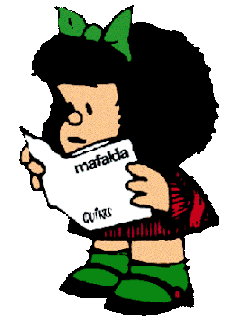



The Internet is a global system of interconnected computer networks that use the standard Internet Protocol Suite (TCP/IP) to serve billions of users worldwide. It is a network of networks that consists of millions of private, public, academic, business, and government networks, of local to global scope, that are linked by a broad array of electronic and optical networking technologies. The Internet carries a vast range of information resources and services, such as the inter-linked hypertext documents of the World Wide Web (WWW) and the infrastructure to support electronic mail.
Most traditional communications media including telephone, music, film, and television are being reshaped or redefined by the Internet. Newspaper, book and other print publishing are having to adapt to Web sites and blogging. The Internet has enabled or accelerated new forms of human interactions through instant messaging, Internet forums, and social networking. Online shopping has boomed both for major retail outlets and small artisans and traders. Business-to-business and financial services on the Internet affect supply chains across entire industries.
The origins of the Internet reach back to the 1960s with both private and United States military research into robust, fault-tolerant, and distributed computer networks. The funding of a new U.S. backbone by the National Science Foundation, as well as private funding for other commercial backbones, led to worldwide participation in the development of new networking technologies, and the merger of many networks. The commercialization of what was by then an international network in the mid 1990s resulted in its popularization and incorporation into virtually every aspect of modern human life. As of 2009, an estimated quarter of Earth's population used the services of the Internet.
Communication
E-mail is an important communications service available on the Internet. The concept of sending electronic text messages between parties in a way analogous to mailing letters or memos predates the creation of the Internet. Today it can be important to distinguish between internet and internal e-mail systems. Internet e-mail may travel and be stored unencrypted on many other networks and machines out of both the sender's and the recipient's control. During this time it is quite possible for the content to be read and even tampered with by third parties, if anyone considers it important enough. Purely internal or intranet mail systems, where the information never leaves the corporate or organization's network, are much more secure, although in any organization there will be IT and other personnel whose job may involve monitoring, and occasionally accessing, the e-mail of other employees not addressed to them. Pictures, documents and other files can be sent as e-mail attachments. E-mails can be cc-ed to multiple e-mail addresses.
Internet telephony is another common communications service made possible by the creation of the Internet. VoIP stands for Voice-over-Internet Protocol, referring to the protocol that underlies all Internet communication. The idea began in the early 1990s with walkie-talkie-like voice applications for personal computers. In recent years many VoIP systems have become as easy to use and as convenient as a normal telephone. The benefit is that, as the Internet carries the voice traffic, VoIP can be free or cost much less than a traditional telephone call, especially over long distances and especially for those with always-on Internet connections such as cable or ADSL. VoIP is maturing into a competitive alternative to traditional telephone service. Interoperability between different providers has improved and the ability to call or receive a call from a traditional telephone is available. Simple, inexpensive VoIP network adapters are available that eliminate the need for a personal computer.
Voice quality can still vary from call to call but is often equal to and can even exceed that of traditional calls. Remaining problems for VoIP include emergency telephone number dialing and reliability. Currently, a few VoIP providers provide an emergency service, but it is not universally available. Traditional phones are line-powered and operate during a power failure; VoIP does not do so without a backup power source for the phone equipment and the Internet access devices. VoIP has also become increasingly popular for gaming applications, as a form of communication between players. Popular VoIP clients for gaming include Ventrilo and Teamspeak. Wii, PlayStation 3, and Xbox 360 also offer VoIP chat features.











